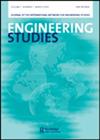Doing STS in STEM Spaces: Experiments in Critical Participation
IF 1.3
3区 工程技术
Q2 EDUCATION, SCIENTIFIC DISCIPLINES
引用次数: 17
Abstract
ABSTRACT This is a story of critical participation in engineering and applied science spaces that examines the challenges and opportunities of STS (Science and Technology Studies) experiments in relation to disciplinary identity, institutional values, and the power dynamics at work in the experiment. Comparing my experiences as an STS graduate student negotiating access in a research-oriented nanoengineering department geared toward capital formation, and as an assistant professor in a teaching-oriented applied science department geared toward holistic problem-solving, I highlight the necessity of creating mutual benefit and shared interest for STS approaches to gain traction in these spaces. At the same time, I describe the ways that institutional imperatives and power dynamics enable and constrain the possibilities for doing so. I argue that making STS relevant in STEM spaces requires paying close attention to the language through which scientists and engineers express their perspectives, values, and challenges, and it requires exercising a level of opportunism in identifying ways to make STS insights visible and legitimate. Teaching in a multidisciplinary curriculum builds on shared interest in education, potentially enabling disparate perspectives to come into dialogue as part of mutual world-building.在STEM空间做STS:批判性参与实验
这是一个关于工程和应用科学空间的批判性参与的故事,探讨了STS(科学与技术研究)实验在学科认同、制度价值和实验中工作的权力动态方面的挑战和机遇。比较我作为STS研究生在面向研究的纳米工程系(面向资本形成)谈判准入的经历,以及作为面向整体问题解决的教学导向的应用科学系(面向整体问题解决)的助理教授的经历,我强调了为STS方法在这些领域获得吸引力创造互利和共同利益的必要性。与此同时,我描述了制度要求和权力动态如何使这样做的可能性成为可能,也限制了这样做的可能性。我认为,让STS与STEM领域相关需要密切关注科学家和工程师表达观点、价值观和挑战的语言,并且需要在确定使STS见解可见和合法的方法方面行使一定程度的机会主义。多学科课程的教学建立在对教育的共同兴趣之上,有可能使不同的观点作为共同构建世界的一部分进行对话。
本文章由计算机程序翻译,如有差异,请以英文原文为准。
求助全文
约1分钟内获得全文
求助全文
来源期刊

Engineering Studies
ENGINEERING, MULTIDISCIPLINARY-HISTORY & PHILOSOPHY OF SCIENCE
CiteScore
3.60
自引率
17.60%
发文量
12
审稿时长
>12 weeks
期刊介绍:
Engineering Studies is an interdisciplinary, international journal devoted to the scholarly study of engineers and engineering. Its mission is threefold:
1. to advance critical analysis in historical, social, cultural, political, philosophical, rhetorical, and organizational studies of engineers and engineering;
2. to help build and serve diverse communities of researchers interested in engineering studies;
3. to link scholarly work in engineering studies with broader discussions and debates about engineering education, research, practice, policy, and representation.
The editors of Engineering Studies are interested in papers that consider the following questions:
• How does this paper enhance critical understanding of engineers or engineering?
• What are the relationships among the technical and nontechnical dimensions of engineering practices, and how do these relationships change over time and from place to place?
 求助内容:
求助内容: 应助结果提醒方式:
应助结果提醒方式:


